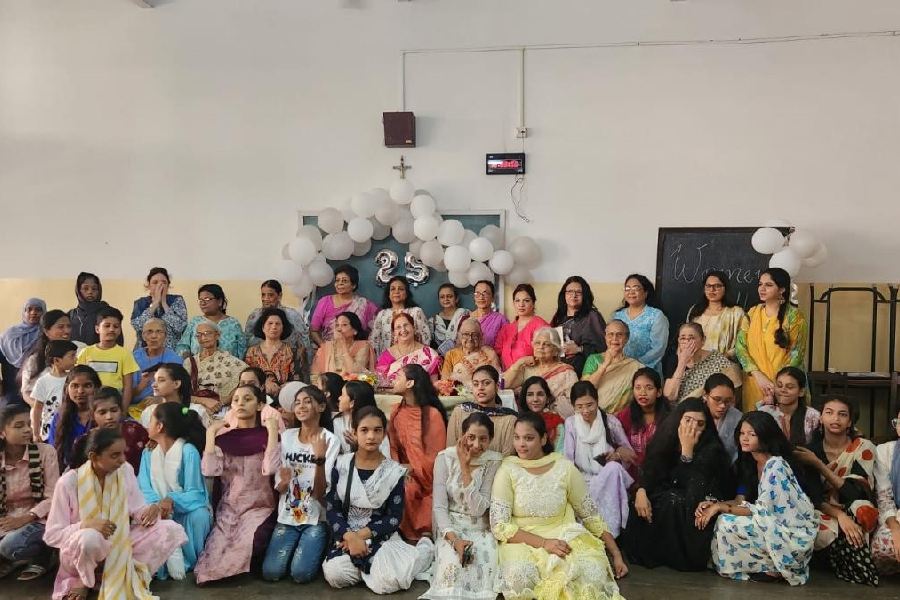Loreto women’s cell teaching girls from underprivileged urban households and enabling them to finish school, turns 25


An organisation that teaches girls from underprivileged urban households and enables them to finish school is celebrating its silver jubilee this month.
The girls, mostly adolescents, find time for studies in between taking care of their siblings or doing a significant load of domestic work at their homes.
Many of them are first-generation learners whose fathers work as drivers orare daily wage earners and mothers work as domestic help.
Over the past 27 years, the Loreto College Women’s Cell has empowered these teenage girls. Many of them now work as teachers, shop assistants, assistants to medical practitioners and in the hospitality industry.
“We believe that unless a girl is economically independent she cannot be truly empowered,” said Usha Bubna, founder of the cell.
“If women don’t earn they will have to ask for money from their husband or father. Even if it is Rs 100, they would have to give an explanation about why they need the money,” she said.
Bubna, who was an economics teacher at Loreto College for 35 years, started the cell after retirement, whileshe was still teaching in BEd College. She is currently the coordinator of the women’s cell.
In 1996, she started with 15-odd girls from the vocational unit of the college who came to learn to stitch but couldnot take measurements because they could not read or write.
Two years later, the students were enrolled with the National Institute of Open Schooling (NIOS).
The cell was supported by Sister Tina Farias, former principal of Loreto College.
Till date, over 600 girls have moved out of the cell with recognised certificates and others with undergraduate degrees.
The cell enables them to complete Class X or XII through NIOS.
Students who qualify are also admitted to Loreto College.
The silver jubilee celebration was delayed because of the Covid pandemic, the authorities said.
Classes in the late 90s started in a hall on the college premises and the girls sat on a mat. Gradually, they moved to a classroom on the ground floor. Now, the cell has a dedicated office and classrooms on the premises.
“The Women’s Cell of Loreto College has for the past 26 years fanned to flame this dream of Mary Ward (founder, Loreto College) by creating opportunities to ‘change’ the lives of young girls through the non-formal education it offers, to bring a sense ofpurpose to its students,” writes Sister ChristineCoutinho, principal, Loreto College, in a brochure published to commemorate 25 years.
It indeed has changed the lives of many over the years.
One such woman is a 33-year-old teacher at a school in Howrah. She had joined the cell after Class X because her mother could no longer afford her school fees.
“After my father’s death, for a few years my mother somehow managed tokeep me in the private school till Class X. But it was not possible in Class XI and I found out about the women’s cell and approached them,” said the science teacher.
In the brochure, Sister Farias writes about the staff of the women’s cell: “Rarely does one find teachers who have given their time over 25 years to reach out to these girls without any financial remuneration for themselves. Their only reward is the joy that comes from empowering young people. Sometimes they themselves have helped individual students financially.”